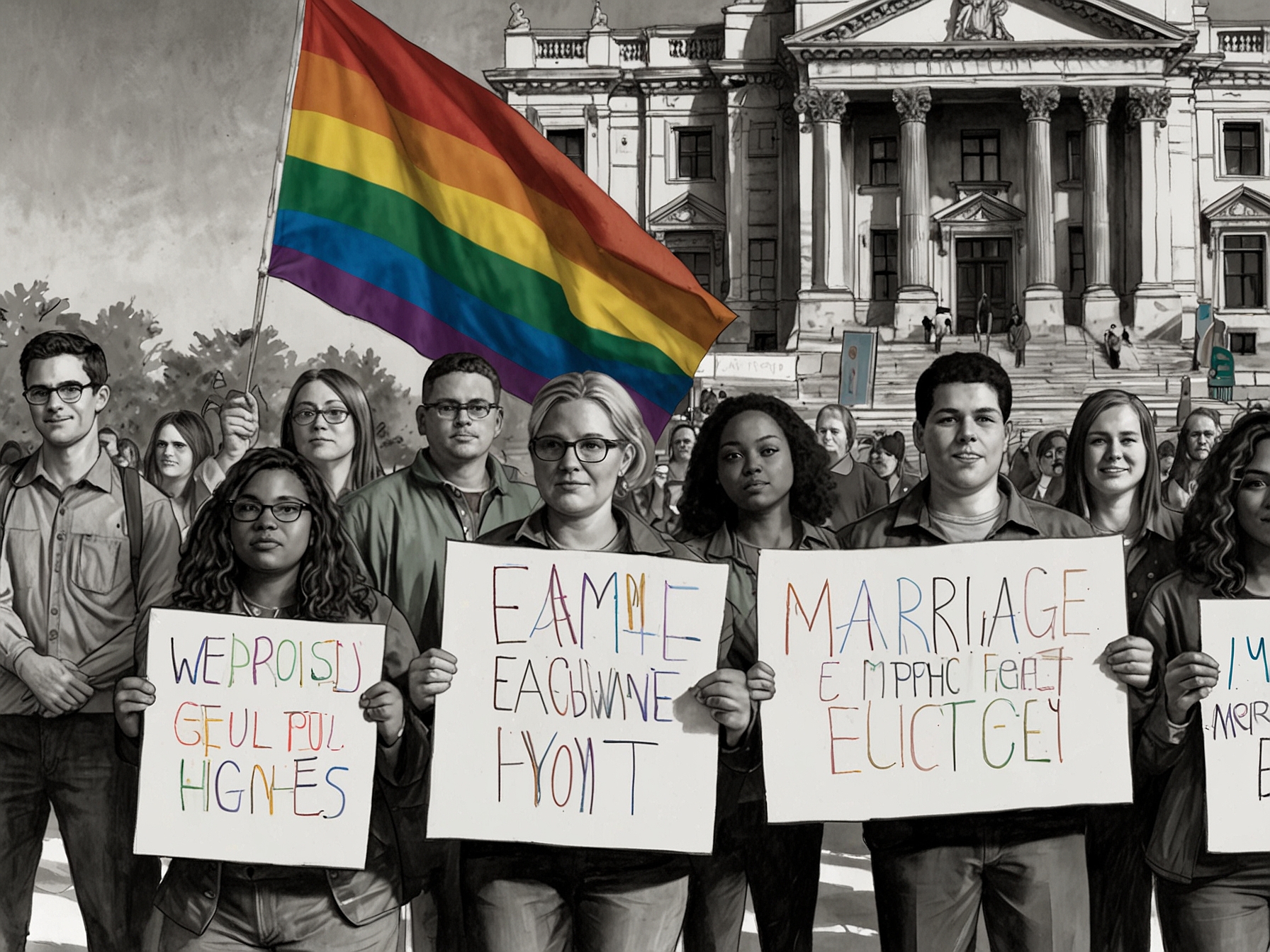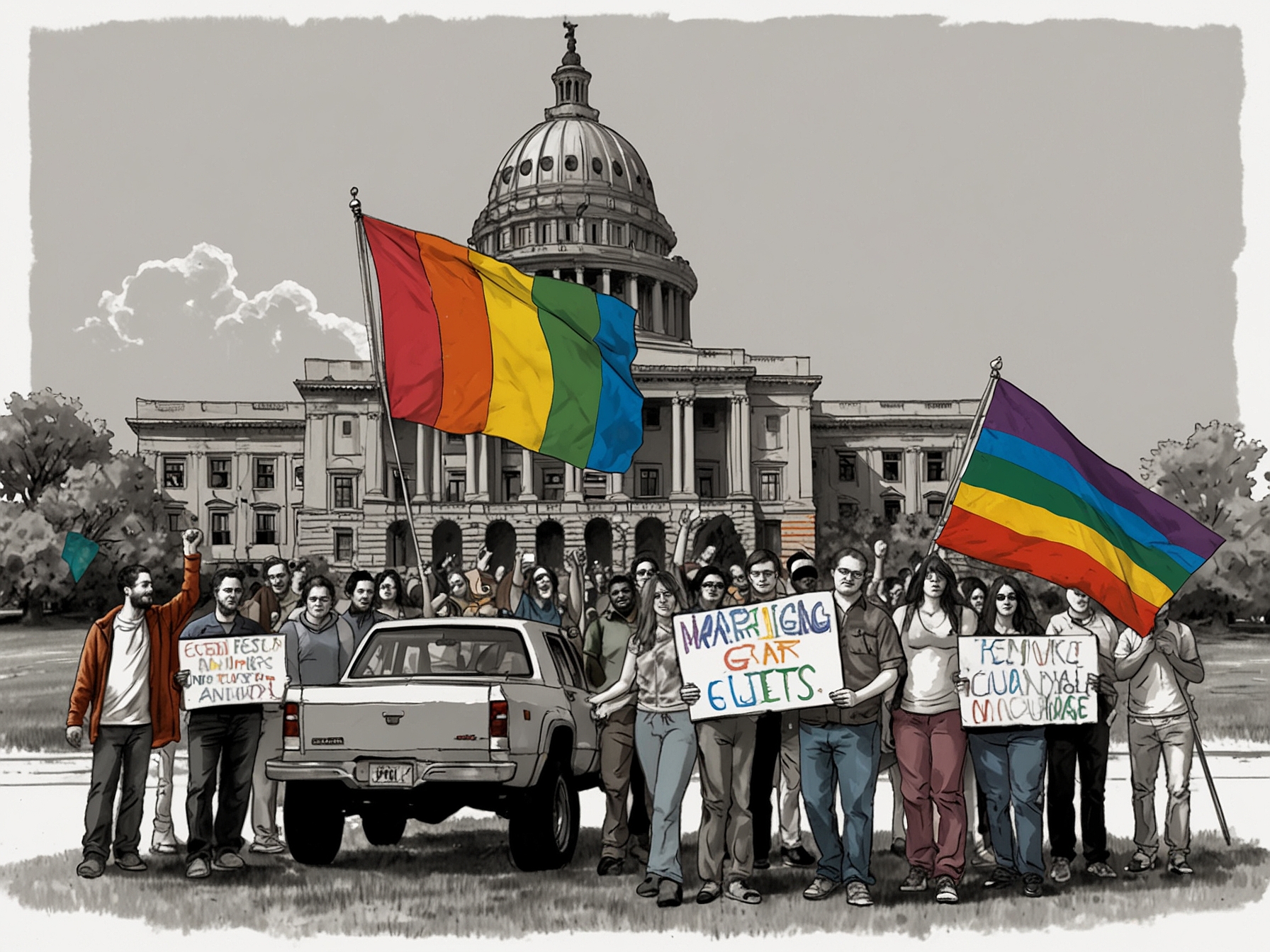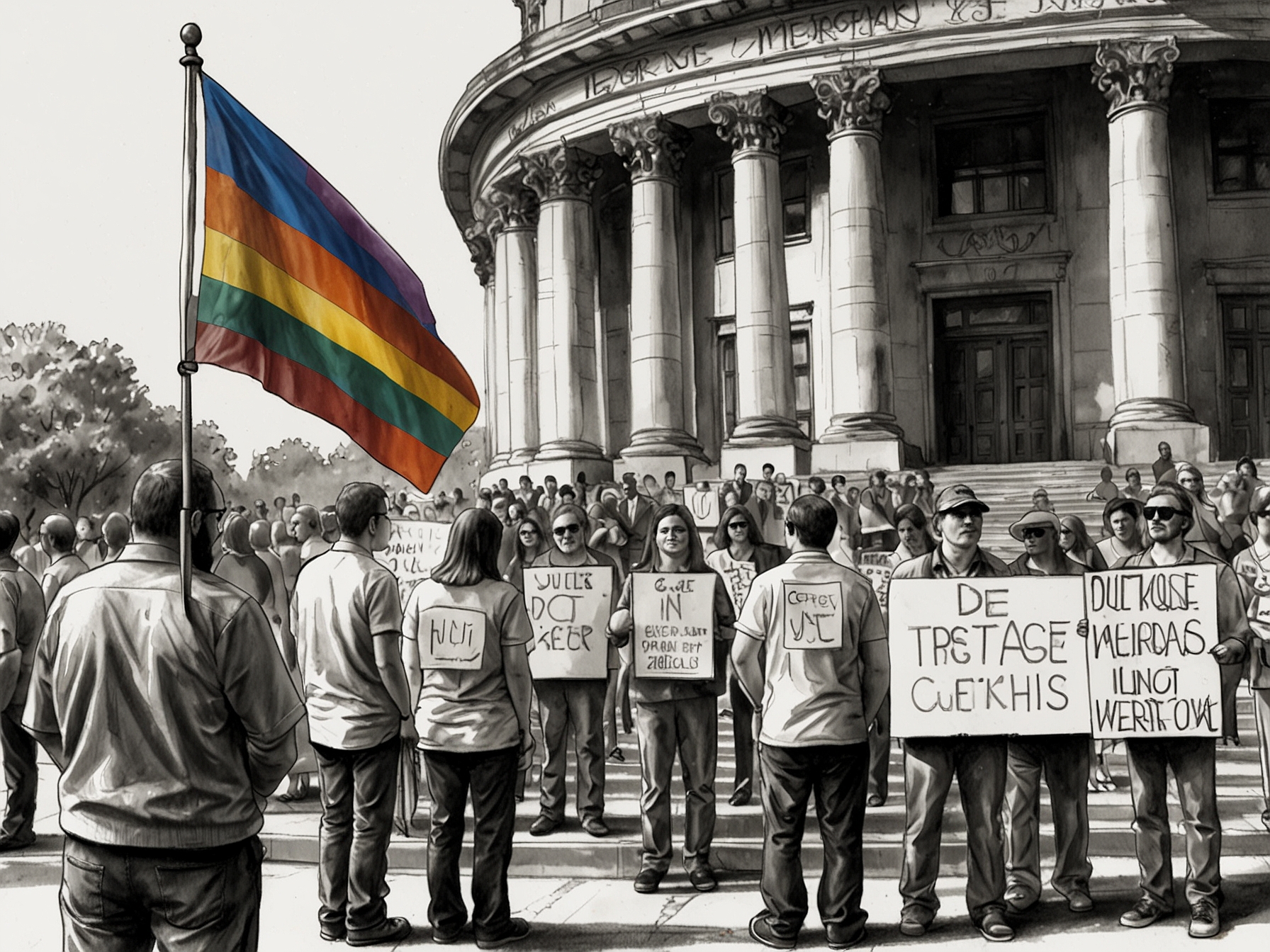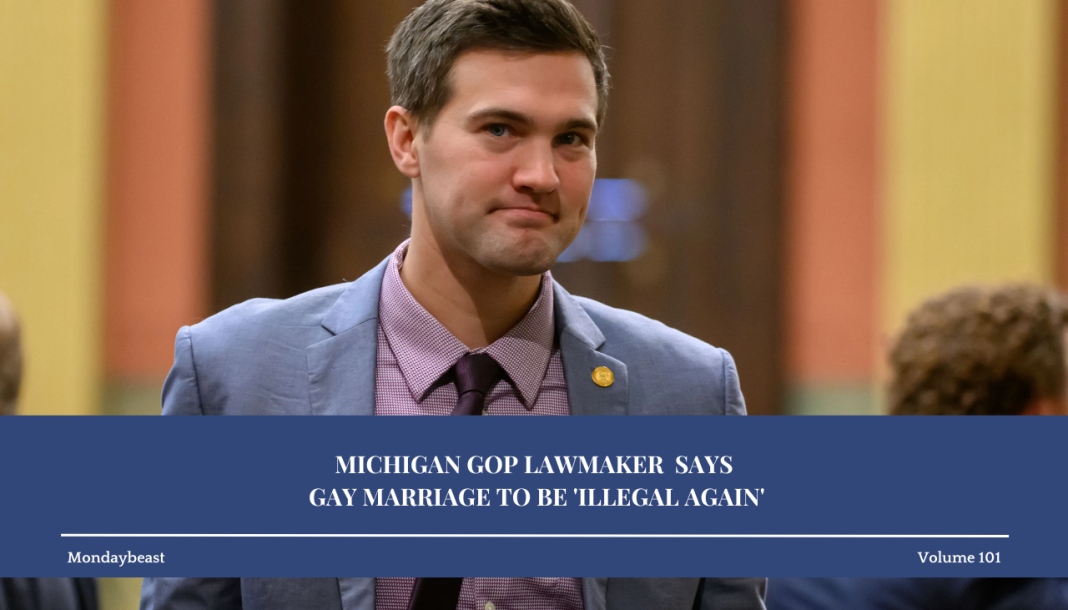A New Call for Controversy
Recently, Michigan state Rep. Josh Schriver stirred emotions. His comments on social media surprised many. He declared gay marriage should be illegal again. This remark follows a significant election where the Michigan GOP regained control of the state House. What does this mean for the future of LGBT rights in Michigan?
Schriver’s declaration came 27 days post-election. It seems like a pointed challenge to the current status quo. But it begs the question: what impact will this have on the lives of same-sex couples? His position appears to reflect a growing conservatism in parts of the state. After all, he represents a new majority caucus focused potentially on rolling back rights.

For many, his words evoke a sense of dread. Gay marriage, after all, became legal in Michigan in 2015. The U.S. Supreme Court recognized it as a fundamental right. Schriver’s assertion feels like a regression to a time when love faced legal obstacles. Can lawmakers really turn back time on such hard-won progress? It is a question that strikes to the heart of many families.
The Supreme Court’s Stance on Marriage Equality
The 2015 landmark decision by the Supreme Court was transformative. Same-sex couples received equal protection under the law. It was a moment of triumph for countless individuals who fought for recognition. Justice Anthony Kennedy’s eloquent writing spoke of liberty and equality, principles foundational to the American identity. Yet, nine years later, does this protection feel secure?
With a conservative 6-3 majority in the Supreme Court, uncertainty looms. Critics like Schriver suggest past decisions could be revisited. Will the rights of same-sex couples hang in the balance due to shifting political tides? It’s an unsettling thought for many, especially those who fear losing the right to marry.
The Backlash from Democrats

Schriver’s comments prompted immediate backlash. Michigan Democrats weren’t silent. Attorney General Dana Nessel swiftly responded. “Please explain how dissolving my marriage helps anyone,” she challenged. Her marriage, like so many others, symbolizes love and commitment.
Rep. Jason Morgan also shared his outrage. As a gay member of the House, his personal feelings were crystal clear. To him, Schriver’s position is a direct affront. “I grew up believing I’d never be able to get married. I’m not going back,” Morgan said. It’s a reminder that for many, these debates are more than ideological—they are deeply personal.
Their responses underscore something profound: legislation can’t ignore human experience. Schriver might view his statements through a religious lens, referencing biblical texts. But for countless couples, marriage is a human right and not just a theological question.
Reflections on Schriver’s Views

In what appears to be more than a political stance, Schriver’s views reflect a larger societal clash. He posted a video of Barack Obama where the former president once called marriage between a man and a woman. But this video, from a time when Obama’s views shifted significantly, raises eyebrows. What does it mean to cling to outdated views?
In an era of growing equality, resisting change seems futile to many. Couples who love each other shouldn’t face legal hurdles. Framing marriage as a strict biblical mandate may feel restrictive. Is Schriver truly representing his constituents, or is this stance more about personal belief?
The Path Forward for LGBT Rights
With a newly elected GOP majority in Michigan, what lies ahead for LGBT rights? Some fear an onslaught of anti-LGBT legislation. Others remain hopeful that public sentiment will guide lawmakers towards protection. The fear of losing rights can motivate activism. How can communities rally to ensure their voices are heard?
Change often comes from the grassroots level. Advocacy groups and allies must unite. Their voices can shape the narrative. Engaging in dialogue, reaching across aisles, and fostering understanding are vital steps. It’s about more than just laws; it’s about lives and legacies.
A Call to Action
Now, more than ever, it’s essential for supporters of marriage equality to speak out. Schriver’s comments may feel reactionary, but they serve as a rallying cry. The battle for equality is ongoing, and the stakes are high. Protecting rights isn’t merely a political issue; it’s a fight for dignity and respect.
As Michiganders reflect on their own values, they must also consider how they can support their neighbors. Politics is personal, and every voice matters. Listen, engage, and advocate for change to ensure that love remains legal for all.




